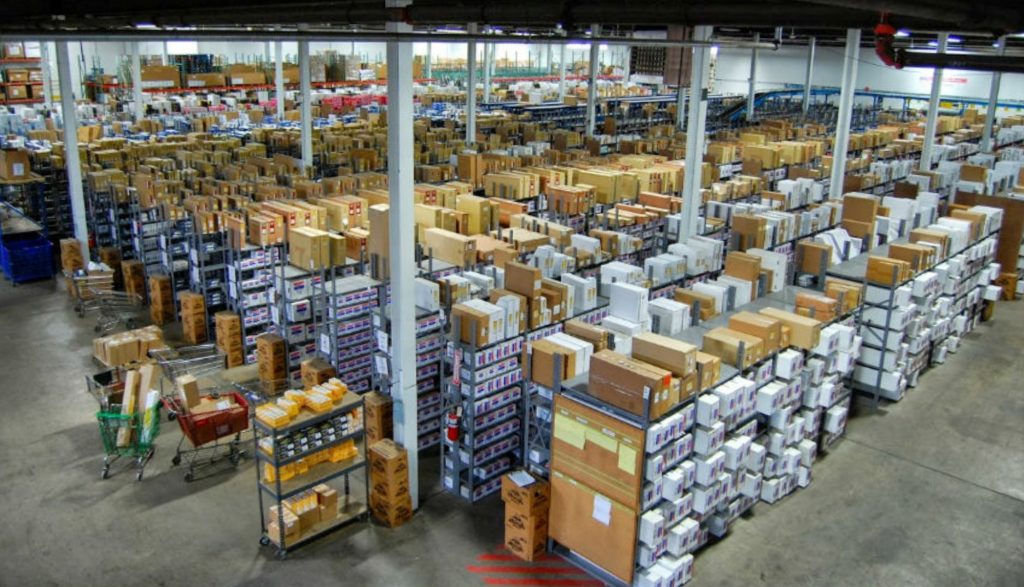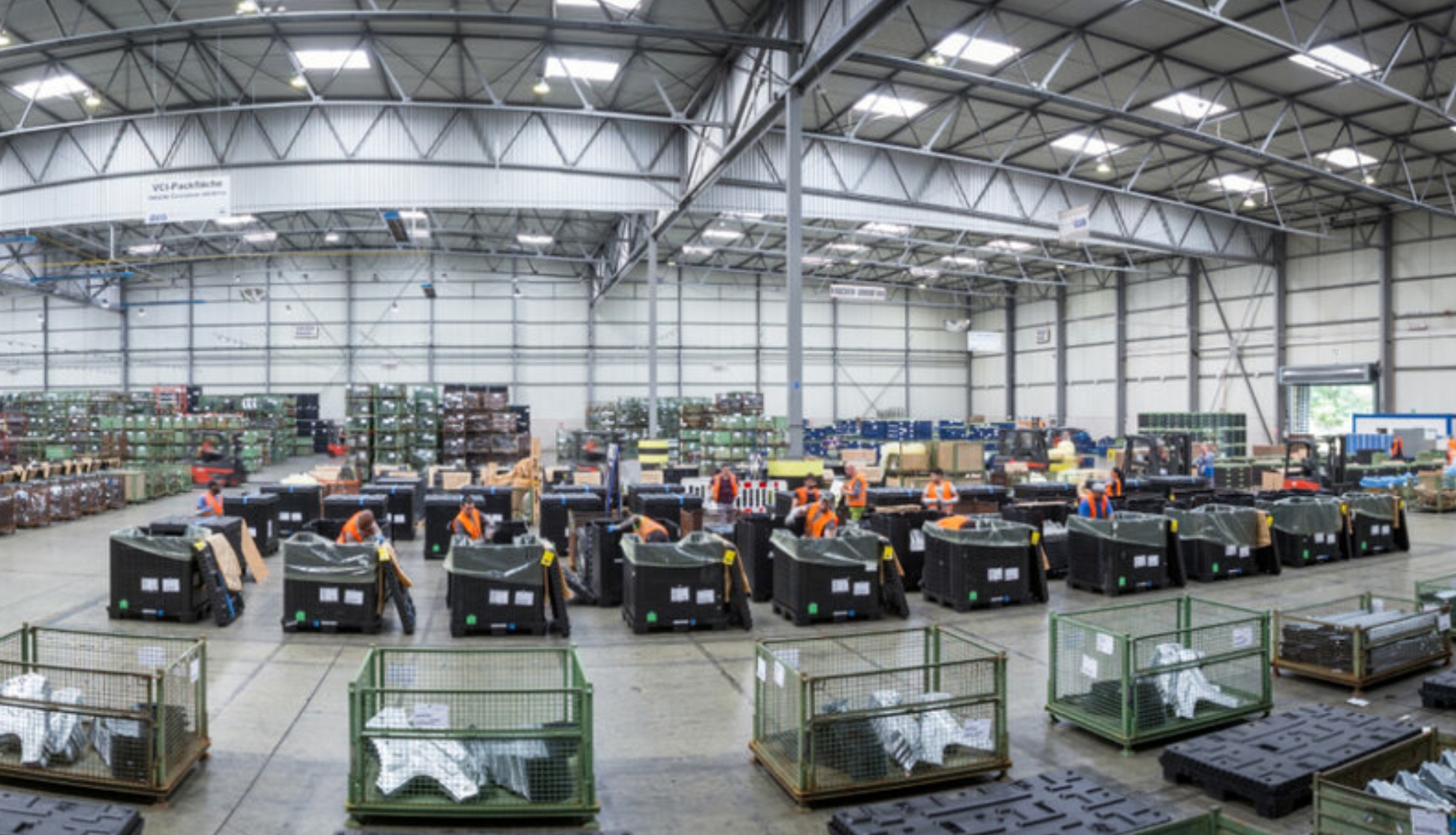
What Is The Purpose of Warehouse Distributors and What is Their Future Outlook
The role of warehouse distributors in the supply chain
Warehouse distributors play a crucial role in inventory management and storage solutions within the supply chain. Effective inventory management involves a range of processes, including tracking quantities, monitoring expiration dates, and organizing products for easy access. By utilizing advanced Warehouse Management Systems (WMS), distributors can automate and streamline these functions, ensuring that inventory is accurately monitored and efficiently stored. This ability to manage inventory effectively not only reduces the likelihood of stockouts or excess inventory but also enhances overall operational efficiency. Consequently, warehouse distributors serve as a vital link in ensuring that goods are readily available for distribution, thus preventing disruptions in the supply chain.
In addition to inventory management, warehouse distributors are essential for order fulfillment and distribution efficiency. Once an order is received, products must be retrieved from storage, packaged, and prepared for shipment. A well-designed warehouse facilitates this process, allowing for quicker and more accurate order processing, which directly impacts customer satisfaction. Furthermore, distributed order management systems help determine the most cost-effective and efficient way to fulfill orders by analyzing various factors such as inventory levels and shipping options[8]. This focus on efficiency is vital in a competitive marketplace, where timely delivery can significantly influence customer loyalty and retention.
Finally, warehouse distributors act as a crucial coordinator between manufacturers and retailers, ensuring a smooth flow of goods throughout the supply chain. They facilitate communication and collaboration between these two parties, allowing for better alignment of inventory levels and demand forecasting. By serving as intermediaries, warehouse distributors help prevent bottlenecks and ensure that products are available when needed, thereby enhancing the overall efficiency of the supply chain. Additionally, as eCommerce continues to grow, the importance of warehouse distributors in maintaining effective logistics and distribution networks becomes even more pronounced, making them indispensable to the future of retail and distribution industries.
Benefits of using warehouse distributors for businesses
One of the primary benefits of using warehouse distributors is their cost-effectiveness and ability to reduce overhead costs. By outsourcing warehousing needs, businesses can significantly cut expenses associated with maintaining their own facilities, including rent, utilities, and staffing. This cost-saving strategy allows companies to allocate resources more efficiently, enabling them to invest in other critical areas such as marketing, product development, or customer service. Moreover, many warehouse distributors operate on a shared-space model, where multiple businesses share warehouse space and resources, further driving down costs. As a result, businesses can benefit from economies of scale, leading to more competitive pricing and improved profit margins.
Another significant advantage of warehouse distributors is their scalability and flexibility in operations. As businesses grow or experience fluctuations in demand, warehouse distributors can quickly adapt to changing needs, allowing companies to scale up or down without the burden of long-term commitments. This flexibility is particularly important in today’s dynamic market environment, where businesses must be agile to respond to consumer preferences and trends. For instance, excess inventory can be stored in warehouses, ensuring that businesses can manage their stock levels effectively without incurring unnecessary costs. Consequently, warehouse distributors provide a crucial backbone for businesses seeking to navigate the complexities of supply chain management while maintaining operational efficiency.
Access to advanced technology and logistics solutions is another key benefit of utilizing warehouse distributors. Many modern warehouses leverage sophisticated inventory and warehouse management applications that facilitate real-time inventory tracking, data exchange, and efficient storage solutions. This technological integration not only speeds up delivery times but also enhances overall supply chain efficiency, allowing businesses to provide better service to their customers. As technology continues to evolve, warehouse distributors will increasingly adopt innovative solutions that streamline logistics processes, improve accuracy, and reduce costs. Thus, businesses partnering with warehouse distributors gain a competitive edge in the market through enhanced operational capabilities and improved service delivery.
Future trends and challenges for warehouse distributors
The growth of e-commerce has dramatically reshaped distribution strategies for warehouse distributors. As consumer expectations evolve toward faster and more reliable delivery, businesses are compelled to adapt their logistics operations accordingly. This shift has resulted in an increased demand for larger storage facilities and more efficient distribution networks. For instance, warehouses are now strategically positioned closer to urban centers to facilitate quick last-mile delivery, thereby reducing shipping times and enhancing customer satisfaction. Consequently, warehouse distributors are re-evaluating their inventory management systems and logistics processes to accommodate these changes, leading to innovative solutions that enhance their operational capacity and responsiveness.
Technological innovations and automation in warehousing are also pivotal in shaping the future of warehouse distributors. The integration of smart technologies into warehousing processes has revolutionized inventory control, material handling, and order fulfillment. For example, automated systems are designed to minimize manual tasks and accelerate processes, from receiving goods to shipping them out. The rise of flexible automation enables warehouses to adapt quickly to changing demands, offering unprecedented efficiency and scalability. Moreover, advanced solutions such as automated sorting and Cubiscan-based box selection are streamlining operations and reducing human error, thereby enhancing overall productivity within distribution centers.
Sustainability practices are becoming increasingly important for warehouse distributors as environmental considerations gain prominence in business operations. Implementing sustainable warehousing strategies helps reduce environmental impact while cutting energy costs and meeting consumer demands for eco-friendly practices. A sustainable warehouse prioritizes efficient transportation routes to minimize carbon emissions and enhance resource efficiency, contributing to a greener supply chain. Furthermore, the adoption of green warehouse practices not only supports environmental goals but also boosts brand reputation among environmentally conscious consumers. As the demand for sustainable solutions grows, warehouse distributors are likely to continue embracing these practices, ensuring they remain competitive in an evolving market.
What Warehouse Distributors Should I Work With & How

Identifying the right warehouse distributors
Assessing your product needs and volume is a crucial first step in identifying the right warehouse distributors for your business. Understanding the specifics of what you require will help you narrow down your options effectively. Consider factors such as the type of products you offer, the volume of orders you anticipate, and any seasonal fluctuations in demand that could affect your supply chain. It is vital to ensure that your chosen distributors have the capacity to handle increased orders as your demand grows, without compromising on quality or delivery times. By establishing clear product needs and expected volumes, you can engage with distributors who are equipped to meet your business requirements and adapt as your operations scale.
Researching the reputation and reliability of potential distributors is essential to establishing a successful partnership. A strong reputation can differentiate reliable wholesale distributors from opportunistic ones in the competitive landscape. To evaluate a distributor’s reliability, consider their history, customer reviews, and any awards or recognitions received in the industry. Additionally, it is beneficial to inquire about their sales performance and marketing capabilities, as these factors can significantly impact your business’s success when working together. Conducting thorough research will help you identify distributors known for consistent performance and customer satisfaction, ensuring that your business remains supported at all times.
Evaluating distributor specializations and expertise is another critical component in finding the right warehouse distributor. Different distributors may focus on specific categories of products or specialize in distributing particular brands or lines of goods. By understanding these specializations, you can align your product offerings with distributors that have proven expertise in your market niche. This alignment can lead to better operational efficiency and collaborative growth opportunities. Engaging with distributors who have a deep understanding of your industry can also provide valuable insights and strategies for optimizing your supply chain and inventory management. This specialized knowledge can ultimately enhance your business operations and help you achieve your goals more effectively.
Understanding the selection criteria for warehouse distributors
When selecting warehouse distributors, one of the primary criteria to consider is pricing and cost structure analysis. Understanding the various costs associated with warehousing and distribution is crucial for making an informed decision. A comprehensive pricing strategy should include not only the base rates but also any additional fees that may arise, such as handling charges or storage costs. Larger distributors may utilize pricing software to thoroughly analyze their costs, ensuring that they offer competitive pricing while maintaining healthy margins. It’s essential to compare the pricing structures of different distributors to identify the most cost-effective options that align with your business needs, ultimately impacting your bottom line.
Another critical factor in evaluating potential warehouse distributors is their delivery times and logistics capabilities. Efficient logistics management can significantly affect your ability to meet customer demands and maintain satisfaction. It’s important to assess how quickly a distributor can process orders and ship goods, as well as their ability to handle various shipping methods and delivery schedules. Factors to consider include: – Average order processing time – Shipping options available (e.g. standard, expedited) – Geographic reach and service areas By analyzing these logistics capabilities, you can ensure that the distributor can support your operational requirements and help you maintain a competitive edge in the market.
Customer service and support evaluation is another vital aspect of selecting warehouse distributors. Good customer service can enhance your experience and ensure effective communication throughout the distribution process. It’s essential to assess how well a distributor responds to inquiries, resolves issues, and maintains transparency in their operations. Key elements to consider include: – Availability of customer support (e.g. phone, email, chat) – Responsiveness to inquiries and complaints – Transparency in reporting and updates on inventory status A distributor with strong customer service will not only make the partnership smoother but also contribute to a more positive overall experience for your clients, ultimately supporting your business’s growth and reputation in the market.
Building and maintaining successful relationships with distributors
Effective communication strategies are fundamental for building strong relationships with warehouse distributors. Establishing a clear communication path from the outset ensures that both parties understand their roles and responsibilities. This can involve regular check-ins, updates on inventory levels, and feedback on service quality. A proactive approach to communication helps in addressing potential issues before they escalate, fostering a collaborative environment. Additionally, having open lines of communication encourages transparency and builds trust, which is essential for maintaining long-term partnerships. Key components of effective communication include: – Clearly defined goals – Regular updates on operations – Open feedback loops
Setting clear expectations and agreements is crucial for successful collaboration with distributors. This begins with defining specific performance metrics and service levels that both parties agree upon. Clear expectations help in minimizing misunderstandings and ensure that everyone is aligned on objectives. For instance, outlining delivery schedules, product quality standards, and response times can significantly enhance operational efficiency. Furthermore, formalizing these expectations in written agreements can serve as a reference point, making it easier to hold each party accountable. Establishing these agreements not only clarifies responsibilities but also strengthens the foundation of the partnership.
Monitoring performance and providing feedback are vital components of maintaining successful relationships with warehouse distributors. Regularly assessing key performance indicators (KPIs) allows businesses to gauge supplier effectiveness and identify areas for improvement. By focusing on the right metrics, such as on-time delivery rates and order accuracy, companies can ensure that their distributors meet the agreed-upon standards. Furthermore, providing constructive feedback fosters a culture of continuous improvement, wherein both parties can work together to enhance processes and address any challenges that arise. By engaging in this ongoing dialogue, businesses can cultivate a productive relationship with distributors that ultimately benefits all stakeholders involved.
Best In Class Warehouse Distributors in the Automotive & Who Should I Work With

Leading Warehouse Distributors in the Automotive Industry
The automotive industry boasts a variety of top warehouse distributors known for their quality and efficiency. Among these, AutoParts Warehouse stands out as a locally owned and operated distributor, headquartered in Langhorne, PA. This distributor has built a solid reputation for providing a wide range of automotive parts and accessories, catering to both retail and wholesale customers. Additionally, companies like NAPA Auto Parts and O’Reilly Auto Parts are recognized leaders in the industry, offering extensive inventories and reliable delivery services. These distributors not only supply essential automotive components but also ensure that they meet the stringent quality standards required in the automotive sector.
Leading automotive warehouse distributors offer a plethora of key services that enhance their value proposition. These services often include efficient inventory management, rapid order processing, and comprehensive logistics solutions. For instance, many distributors implement advanced distribution management practices that optimize the supply chain, ensuring timely delivery from vendors to end customers. Furthermore, value-added services such as technical support, product training, and specialized packaging can differentiate distributors in a competitive market. By providing these essential services, warehouse distributors help automotive businesses streamline operations and ultimately improve customer satisfaction.
Reputation and reliability play critical roles in the selection of warehouse distributors in the automotive industry. Top distributors are often evaluated based on their track record of fulfilling orders accurately and on time, as well as their responsiveness to customer inquiries. Customer reviews and testimonials can provide valuable insights into a distributor’s reliability, making it essential for businesses to conduct thorough research before forming partnerships. Additionally, factors such as the distributor’s longevity in the market, their relationships with manufacturers, and their adherence to industry standards are indicative of their overall reputation. By choosing distributors with a solid reputation for reliability, automotive businesses can mitigate risks and enhance their operational efficiency.
Criteria for Choosing the Right Warehouse Distributor
When selecting a warehouse distributor, several key factors must be considered to ensure that the partnership aligns with your business goals. The nature of the product being distributed plays a crucial role, as different products may require specialized handling, storage, and transportation methods. Additionally, understanding the market dynamics is vital; for instance, consider the target audience and their purchasing behavior, which can impact the distributor’s effectiveness. Other essential factors include the distributor’s reputation, their ability to maintain sufficient stock levels, and their experience in the automotive industry. By thoroughly evaluating these criteria, businesses can make informed decisions when choosing the right distributor.
Location and accessibility are paramount when it comes to selecting a warehouse distributor. A strategically located warehouse should be in close proximity to both suppliers and customers to facilitate quick and efficient receipt of goods. This geographical advantage not only reduces transportation costs but also enhances inventory management by aligning storage capabilities with product demand. Furthermore, a distributor that operates in a well-connected area can provide faster delivery times to customers, which is especially critical in the competitive automotive market. Therefore, assessing the location of potential distributors is a key step in ensuring operational efficiency and customer satisfaction.
Evaluating distributor performance and customer service is essential for establishing a successful partnership. Businesses should focus on key performance indicators (KPIs) that reflect the distributor’s reliability, delivery times, and accuracy in fulfilling orders. Additionally, strong customer service from a distributor can greatly enhance the overall experience, as it fosters clear communication, prompt responses to inquiries, and effective problem-solving. Conducting regular assessments of distributor performance ensures that they meet the necessary standards for product quality, compliance, and reliability. By prioritizing these evaluations, companies can identify the best distributors that not only meet their operational needs but also contribute positively to their overall success in the automotive sector.
Benefits of Partnering with a Quality Warehouse Distributor
Partnering with a quality warehouse distributor can significantly enhance supply chain efficiency, which is crucial in the fast-paced automotive industry. A reliable distributor ensures that manufacturers receive their orders on time, which is essential for maintaining production schedules and meeting customer demands. Improved efficiency can be achieved through better tracking of products as they move through the supply chain, from production to warehousing and ultimately to distribution. This visibility leads to optimized vendor management and allows for better decision-making in inventory management. Thus, a strong partnership with a distributor translates to seamless operations, allowing businesses to focus on their core competencies while the distributor handles logistics effectively.
Cost savings and inventory management are another critical benefit of collaborating with a quality warehouse distributor. By leveraging the distributor’s expertise in inventory optimization, businesses can reduce excess inventory and avoid stockouts, which often plague manufacturers. This inventory management method typically relies on detailed sales forecasts, enabling companies to anticipate their inventory needs accurately. Furthermore, purchasing large quantities from a distributor can lead to better discounts, thereby reducing ordering costs and improving the company’s bottom line. As a result, businesses can experience substantial cost reductions while maintaining an efficient inventory flow.
Building long-term partnerships with quality warehouse distributors fosters business growth and stability. While no partnership is without its challenges, such as misunderstandings or disagreements, the benefits of a solid relationship often outweigh the downsides. A trusted distributor not only provides reliable service but also understands the specific needs of the automotive sector, allowing for tailored solutions that drive mutual growth. As companies work closely with their distributors, they can identify opportunities for innovation and efficiency improvements that benefit both parties. By nurturing these partnerships, businesses can create a sustainable competitive advantage in the ever-evolving automotive market.





